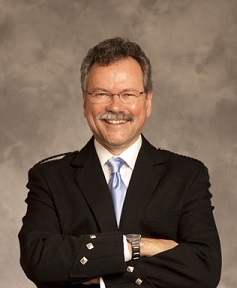MP: Your empathetic Near-Death Experience (NDE) occurred a number of years ago. What’s kept you engaged in the subject all these years?
ST: Shortly after I had my NDE, I started looking for ways to touch the space I encountered during my experience. I discovered Hemi-Sync® and was able to be in that space again. The difference was I was directing the exploration rather than having the experience happen to me. I took Monroe classes and became a trainer in 1985. What’s kept me engaged? I discovered only a pinprick in the vastness of experience that awaits the dedicated explorer.
You don’t outgrow it. My NDE is always with me, pulling me to find more answers about who I am as a human being and my role both here in the physical and in the nonphysical universe. It’s the difference between a spiritual epiphany and an NDE. Spiritual epiphanies tend to degrade over time and become less important to how your live your daily life. NDEs are exactly the opposite. NDEs change you forever. Over time, the experience becomes clearer and plays a more central role in my life. That’s what’s happened to me. My near-death experience has not faded, but become richer.
MP: What prompted you to create this project, and at this particular time?
ST: Forty years after Dr. Raymond Moody began the exploration of the phenomenon in his book Life After Life, near-death experiences have entered the mainstream of consciousness. People are now more comfortable with the idea of an NDE, and are curious about what else is out there for us after we shed these wonderful physical bodies. Many are interested in how to make the transition well.
We know a considerable amount about what happens during an NDE, and it’s time to share that knowledge in a more experiential way. My hope is that those of us willing to take the journey will move it out of our heads and have it be an experience that encounters our hearts. That’s what this project is about.
MP: Where did you draw your inspiration?
ST: From the people who’ve had NDEs. I’ve interviewed hundreds of experiencers. I’ve studied the NDE research based on more than 6,000 unique accounts. I’ve included the places that experiencers most frequently describe in four guided meditations. Listeners will get a chance to experience meeting their guides, the tunnel, meeting friends and relatives who have already made their transition, a life review, cities of light, and a realm of infinite knowledge. I’ve also been careful to include time to explore these vast areas on your own.
MP: How do you think the meditations can benefit others?
ST: There is a real difference between reading a book and exploring the territory. These exercises enable listeners to move out of their heads and into the world of the known. By doing that I hope that many will lose their last vestiges of fear around the process of dying, and embrace the fullness of what it means to be human, inside and outside the physical body.
Listeners will find the transition full of wonder and ease. The anxiety about what’s going to happen next will just evaporate. As Bob Monroe often said, “Once the anxiety of what comes next is gone, then something much more devastating happens: curiosity.”
What I hope for all who listen is the realization that you are much more than your physical body. I want you to experience the transition from the physical to the nonphysical as easy and filled with wonder. I hope you will explore, discover new aspects of self and what it means to be human.
MP: What is the latest research concerning NDEs?
ST: The question over whether NDEs are real has finally been put to rest. Now we can turn our attention to more engaging topics, such as the root of consciousness. Medical research is discovering that consciousness resides independent of the physical body. The brain seems to be the translating organ between the nonphysical and physical worlds.
The new era of NDE research revolves around the question: how do we make meaning of the experience? Bob Monroe gave us a tool for anyone to explore and discover answers. He invited us all to search and report back what we uncovered. The amazing part is that we’ve only just begun. It feels like a few explorers have put a foot on the coast of a new continent, and we’ve just started to move inland with no idea how vast the land before is and what it contains.
MP: Anything else?
ST: The brilliance of composer John Serrie and sound engineer Kevin Cowan must be acknowledged. Their ability to create an atmosphere that both guides you and allows you to have your experience is masterful.




